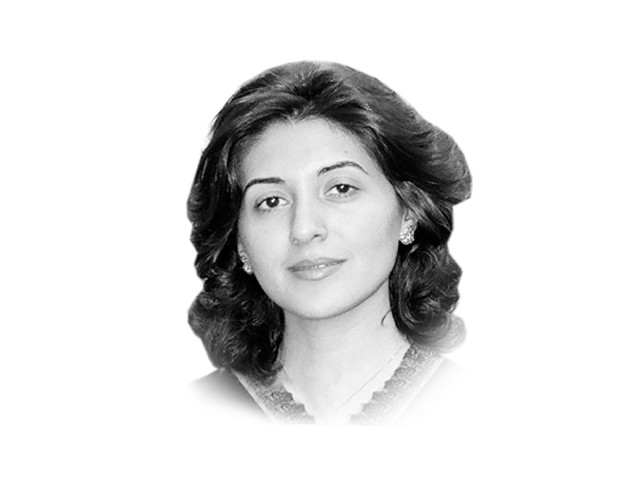Targeting dual nationals
It is not in Pakistan’s interest to comprehensively disbar dual nationals from participating in Pakistan’s politics.

Targeting dual nationals
Let’s first take a look at who dual nationals are. They comprise of a variety of different people, including, for instance, those wealthy Pakistanis who use birth tourism to ensure that their children are born with two nationalities and those affluent few who make foreign investments to ensure an opt out should conditions in Pakistan deteriorate further; but they also include those hard-working middle-class Pakistanis who go abroad in search of a livelihood and often sustain families back home. It is this latter category in fact that forms the bulk of dual nationals. When laws are made, they are not made to exclude a few people we may not like. They are made to apply to everyone equally. And thus it must be asked whether denying rights to this category of people and hence alienating them will harm Pakistan or help it?
Much has been said, for instance, about Husain Haqqani’s dual nationality. He has denied the rumours, insisting that he is only a Pakistani national. Irrespective, it must be pointed out that many countries appoint dual nationals as their ambassadors. An ability to speak the language of the host country well, understand its culture and promote greater understanding is what an ambassadorial role entails. This has often meant that dual nationals are better placed to carry out this function. In Pakistan, the precedent was set a long time ago when, in 1952, Muhammad Asad (born Leopold Weiss), an Austrian Jewish convert to Islam, took on Pakistani citizenship in addition to his Austrian one, and was appointed Pakistan’s minister plenipotentiary to the United Nations in New York.
Nor are dual nationals limited to ambassadorial positions in today’s global village. In fact, Rafik Hariri, former prime minister of Lebanon, widely credited for rebuilding the country after its civil war, held both Saudi and Lebanese nationalities. Former Canadian prime minister, John Turner, holds both British and Canadian nationalities. In addition, both the current Estonian president, Toomas Hendrik Ives, and the former Lithuanian president, Valdas Adamkus, had been naturalised US citizens. Ives served as Estonia’s ambassador to Canada and Mexico as a dual national but gave up his US citizenship before becoming ambassador to US and eventually the president. He was instrumental in facilitating Estonia’s membership in the European Union and growing its economy. Moreover, Arnold Schwarzenegger retained his Austrian citizenship during his tenure as governor of California. Dual nationals are sitting members of parliament in several countries. In the UK, dual nationals are defined as those who have two or more nationalities. They have the same political rights as others and thus can vote and run for office in the UK national elections as well as the European parliament elections.
Pakistan’s dual nationals have served the country extensively. If the argument against them becoming government functionaries is that they have also taken an oath to a foreign country and hence cannot be trusted, then why do we trust them to serve as heads of department in public hospitals or as vice-chancellors of universities? If we can trust them to teach our students and to treat our sick, why can’t we trust them to formulate policy or represent the country abroad? Indeed, building state-of-the-art hospitals, universities and large infrastructure projects relies on foreign expertise and hence Pakistan’s dual nationals can be an asset to facilitate development.
It is also important to note that Pakistan’s dual nationals are generously funding charitable endeavours in Pakistan and denying them the same rights as others could impede these efforts. For example, whether it is the Layton-Rehmatullah Benevolent Trust or the Shaukat Khanum Memorial Trust, dual nationals sit on the board of directors and provide key funding. A very large chunk of the Edhi Foundation’s funding and close to half of The Citizen’s Foundation’s funding comes from overseas. Other charities like Developments in Literacy and UK Association for Medical Aid to Pakistan are the exclusive brainchildren of dual nationals.
Perhaps only a select few of these well-meaning dual nationals may have political aspirations. But denying them the ability to pursue their aspirations is almost sure to dampen their zeal to transfer money and expertise to Pakistan. We have already alienated our non-Muslim populations by barring them from certain high political offices, doing the same with dual nationals is likely to make us more insular as a country. Instead of targeting dual nationals to assuage our collective anger over how rotten things have become in Pakistan, why not join hands with them to make things better?
Surely, barring dual nationals will not put an end to bonded labour in Pakistan or prevent nepotism or corruption. Instead, perhaps we can call for greater transparency and access to information about those contesting elections. And thus, if a dual national is contesting elections, this fact should not be concealed but presented before the public. If the electorate decides they would rather not vote for a dual national, then that is fine but it is not in Pakistan’s interest to comprehensively disbar dual nationals from participating in Pakistan’s politics.
Published in The Express Tribune, December 26th, 2011.















COMMENTS
Comments are moderated and generally will be posted if they are on-topic and not abusive.
For more information, please see our Comments FAQ